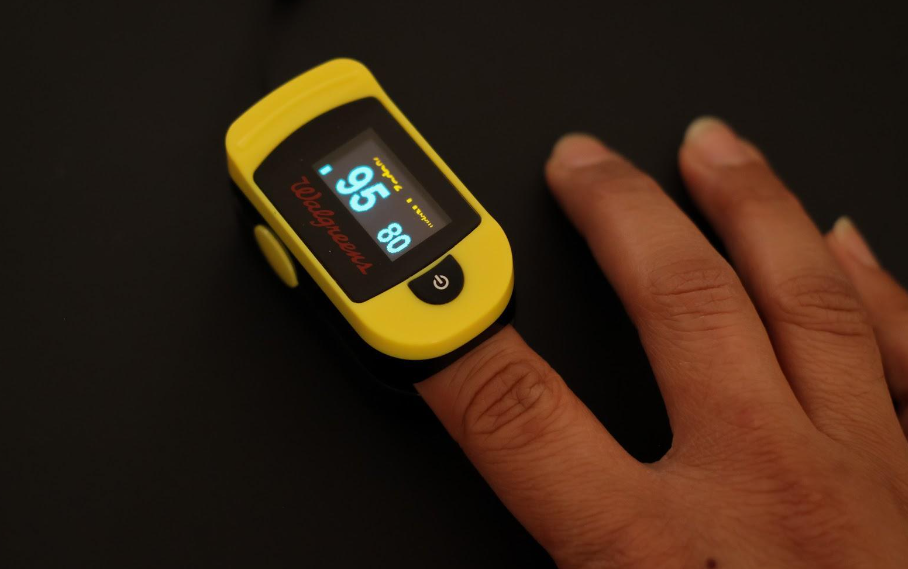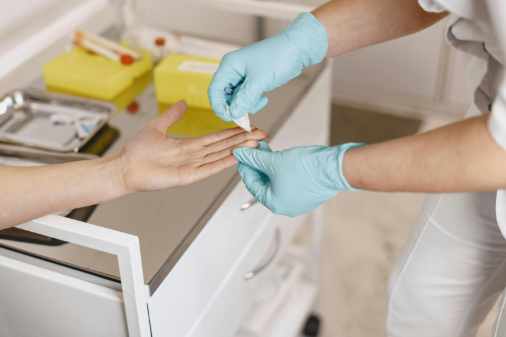What is Respiratory Care?
What is Respiratory Care?

Breathing is something we often take for granted, but for those with respiratory illnesses, it can be a daily struggle. Respiratory care plays a crucial role in helping these patients manage their conditions and improve their quality of life. From neonatal care to pulmonary rehabilitation, respiratory therapy offers a wide range of specialized treatments to meet the unique needs of each patient.
What is Respiratory Care?
Respiratory care is a specialized healthcare field that focuses on the treatment, management, and prevention of respiratory disorders. Respiratory therapists (RTs) are trained professionals who work closely with physicians and other healthcare providers to provide patient care in hospitals, clinics, and other healthcare settings.
They assess, diagnose, and treat patients with breathing problems, including chronic lung diseases such as asthma, emphysema, and chronic bronchitis. They also provide care for acute conditions such as pneumonia, heart failure, and trauma-related injuries.
These therapists use a variety of diagnostic and therapeutic tools to help patients breathe more easily. These may include pulmonary function tests, arterial blood gas analysis, oxygen therapy, mechanical ventilation, chest physiotherapy, and medication administration. They also educate patients and their families about their conditions and the proper use of respiratory equipment and techniques.
They work as part of a healthcare team to manage patients with respiratory disorders. They may collaborate with physicians, nurses, social workers, and other healthcare professionals to provide comprehensive care for patients with complex medical conditions.
In addition to patient care, respiratory therapists also play a key role in public health initiatives such as smoking cessation programs, asthma education, and respiratory disease prevention. They may work in community clinics or public health organizations to promote respiratory health and disease prevention.
What to Expect From the Treatment?
The specific treatment that a patient with a respiratory disorder can expect will depend on their individual condition and needs. However, in general, patients undergoing respiratory care can expect a comprehensive and individualized approach to their treatment.
The initial assessment by the respiratory therapist will involve a review of the patient's medical history, physical examination, and diagnostic tests. Based on this information, the respiratory therapist will develop a treatment plan tailored to the patient's specific needs.
Treatment may involve a combination of therapies, including medications, oxygen therapy, breathing exercises, chest physiotherapy, and mechanical ventilation. The respiratory therapist will work closely with the patient to monitor their response to treatment and adjust the plan as needed.
Patients undergoing respiratory care can also expect to receive education and support to help manage their condition. The respiratory therapist will provide guidance on proper medication use, breathing techniques, and equipment use, such as inhalers or oxygen tanks. They may also provide education on lifestyle changes, such as quitting smoking or avoiding triggers for asthma attacks.
In addition to managing acute respiratory episodes, respiratory care also focuses on preventing complications and promoting long-term respiratory health. Patients can expect their respiratory therapist to work with them to develop a plan for managing their condition at home, including self-monitoring and identifying signs of worsening symptoms.
Types of Respiratory Therapy
Understanding the different types of respiratory therapy can help patients and healthcare providers choose the most appropriate treatment for each individual case. Read on as we discuss the various types of respiratory therapy in detail
Long-Term Care
Long-term care respiratory therapy is a specialized area of respiratory care that focuses on providing ongoing treatment and support for patients with chronic respiratory disorders. This type of therapy is designed to help patients manage their symptoms and improve their quality of life over the long term.
Patients who require long-term care respiratory therapy typically have chronic respiratory conditions such as
chronic obstructive pulmonary disease
(COPD), cystic fibrosis, or neuromuscular diseases that affect their ability to breathe properly. These conditions require ongoing management to prevent complications and maintain respiratory function.
This may involve a variety of treatment approaches, including oxygen therapy, medication management, and pulmonary rehabilitation. Oxygen therapy is a common treatment for patients with chronic respiratory conditions. It involves the use of supplemental oxygen to help patients breathe more easily. The therapy may be delivered through a mask or nasal cannula, and it may be used at home or in a healthcare facility.
Medication management is also an important aspect of long-term care respiratory therapy. Patients with chronic respiratory conditions may require medication to manage their symptoms and prevent complications. The respiratory therapist will work with the patient and their healthcare provider to develop a medication plan that is tailored to their specific needs.
Neonatal-Pediatrics
Neonatal-pediatric respiratory therapy is a specialized area of respiratory care that focuses on the diagnosis and treatment of respiratory disorders in newborns, infants, children, and adolescents. The respiratory therapist in this field provides care for patients ranging from premature infants to adolescents with respiratory disorders such as asthma, cystic fibrosis, and bronchopulmonary dysplasia.
As their anatomy and physiology are different from adults, infants and children have unique respiratory needs. Neonatal-pediatric respiratory therapy is used to manage respiratory issues in patients of this age demographic. This type of therapy requires specialized training, knowledge, and skills to manage the complex respiratory conditions that affect infants and children.
Some of the common respiratory disorders in neonatal-pediatrics include respiratory distress syndrome (RDS), bronchopulmonary dysplasia (BPD), asthma, and cystic fibrosis. Treatment for these conditions may involve a combination of therapies such as oxygen therapy, mechanical ventilation, medications, and chest physiotherapy.
Pulmonary Rehabilitation
Pulmonary rehabilitation is a specialized area of respiratory therapy that involves the use of exercise and breathing techniques to improve respiratory function, reduce symptoms, and improve overall health in patients with chronic respiratory conditions. The goal of pulmonary rehabilitation is to help patients manage their symptoms and improve their quality of life. It is often used in conjunction with other treatments for chronic respiratory conditions such as chronic obstructive pulmonary disease (COPD), interstitial lung disease, and pulmonary hypertension.
The pulmonary rehabilitation process typically involves an initial assessment to determine the patient's current respiratory function, exercise tolerance, and overall health status. Based on this assessment, the respiratory therapist will develop a personalized treatment plan that may include exercise training, and breathing techniques.
Exercise training is a key component of pulmonary rehabilitation, and it typically involves both aerobic and resistance exercises. Aerobic exercises such as walking or cycling help improve cardiovascular fitness and endurance, while resistance exercises such as weight lifting or resistance band exercises help improve muscle strength and endurance.
Breathing techniques are another important part of pulmonary rehabilitation. These techniques may include deep breathing exercises, pursed-lip breathing, and diaphragmatic breathing. These techniques can help improve lung function, reduce shortness of breath, and improve the overall efficiency of breathing.
Polysomnography
Polysomnography is a specialized area of respiratory therapy that focuses on the diagnosis and treatment of sleep disorders, particularly those related to breathing. Polysomnography involves monitoring a patient's sleep patterns, breathing, heart rate, and brain activity during overnight sleep studies. The goal of polysomnography is to identify and diagnose sleep disorders such as sleep apnea, periodic limb movement disorder, and narcolepsy.
During a polysomnography test, the patient is typically monitored overnight in a sleep laboratory. A respiratory therapist applies sensors to the patient's body to measure their breathing, heart rate, and brain activity. The patient's sleep patterns and breathing are monitored throughout the night to identify any abnormalities.
One of the most common sleep disorders that polysomnography can diagnose is sleep apnea. Sleep apnea is a condition in which the patient's breathing is interrupted during sleep, leading to frequent awakenings and poor sleep quality. Polysomnography can help identify the severity of sleep apnea and determine the most effective treatment options.
Other sleep disorders that polysomnography can diagnose include periodic limb movement disorder, in which the patient's limbs twitch during sleep. Narcolepsy, which involves excessive daytime sleepiness and sudden sleep attacks is also a condition polysomnography can diagnose. Polysomnography can also help identify other factors that may be contributing to poor sleep quality, such as restless leg syndrome, insomnia, or anxiety.
Once a sleep disorder has been diagnosed through polysomnography, the respiratory therapist works with the patient and their healthcare team to develop a treatment plan. Treatment may involve lifestyle changes such as weight loss or exercise, the use of a
continuous positive airway pressure (CPAP) machine to keep the airway open during sleep, or medication to manage symptoms.
If you’re struggling with a respiratory condition, don't hesitate to seek the help of a respiratory therapist. At
Bayou Bend Health System in Louisiana, our experienced respiratory care team is here to provide compassionate and effective treatment to improve your respiratory function and overall health.
Contact us today at
(337) 828-0760 to schedule an appointment and take the first step towards better breathing.



